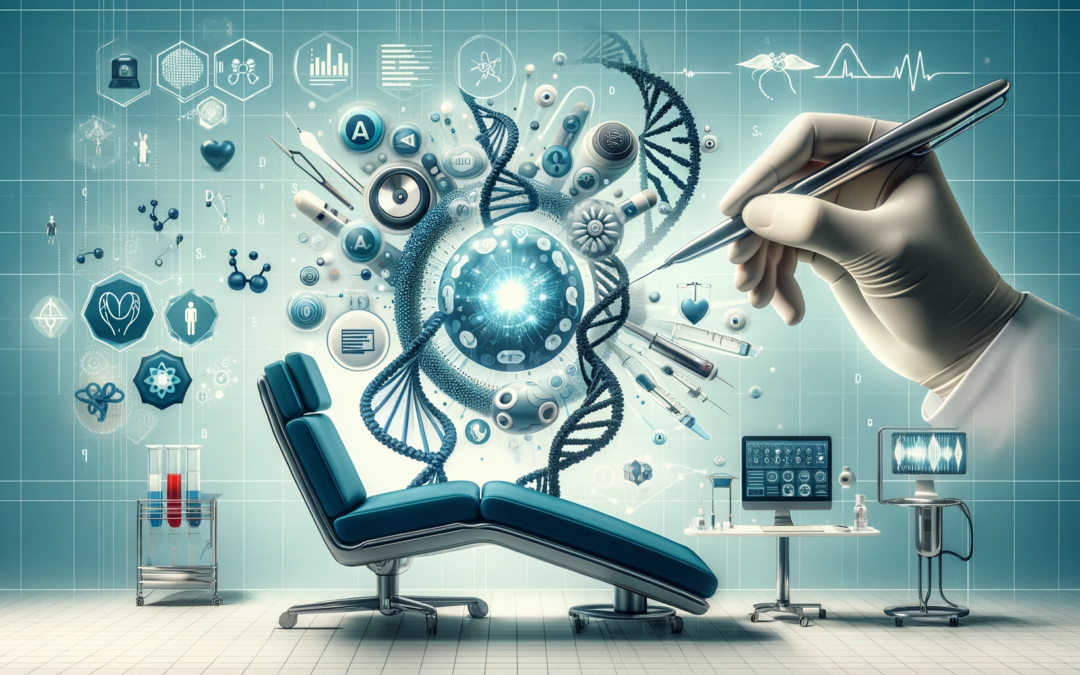Personalized Care at Scale: The Revolution of Precision Medicine with AI
Introduction:
In the realm of healthcare, the one-size-fits-all approach has long been the norm. However, the advent of artificial intelligence (AI) is transforming this landscape, paving the way for precision medicine and personalized healthcare. By harnessing the power of AI technologies, healthcare providers can now offer more accurate diagnoses, personalized treatment plans, and targeted therapies, revolutionizing patient care and medical outcomes.
AI in Diagnostic Accuracy:
One of the key areas where AI is making significant strides is in diagnostic accuracy. AI-powered algorithms are capable of analyzing vast amounts of patient data, including medical imaging, to detect diseases at an early stage and interpret results with unparalleled accuracy. For example, AI-driven diagnostic tools have shown remarkable success in detecting early signs of cancer, enabling healthcare professionals to intervene sooner and improve patient outcomes.
AI in Treatment Personalization:
AI is also playing a crucial role in developing personalized treatment plans. By analyzing individual patient data, genetics, and specific health conditions, AI algorithms can generate tailored treatment recommendations that take into account a patient’s unique needs. This personalized approach has been shown to improve treatment outcomes and reduce adverse effects. In fact, several cases have already demonstrated the effectiveness of AI-driven personalized treatments in conditions such as diabetes, cardiovascular diseases, and mental health disorders.
AI in Drug Development and Genomics:
Furthermore, AI is revolutionizing drug development and genomics. With the ability to analyze vast amounts of data, AI algorithms can identify patterns and correlations that humans may overlook. This has led to the discovery of new drug targets and the development of targeted therapies for complex diseases. AI is also aiding in the field of genomics, helping researchers understand the role of genetic factors in health and disease. By leveraging AI, scientists can unravel the intricate genetic makeup of individuals and develop personalized treatment strategies based on their unique genetic profiles.
AI in Predictive Healthcare:
Another significant application of AI in healthcare is predictive healthcare analytics. By analyzing patient data and patterns, AI algorithms can forecast potential health issues and identify individuals at risk. This proactive approach allows healthcare providers to intervene early, preventing the onset of diseases and improving overall population health. Several AI initiatives and platforms have been developed to facilitate predictive healthcare, enabling healthcare professionals to make informed decisions and allocate resources efficiently.
Challenges and Ethical Considerations:
While the potential of AI in precision medicine is immense, it is not without challenges and ethical considerations. Data privacy, algorithmic bias, and equitable access to AI-driven healthcare are just a few of the concerns that need to be addressed. Responsible integration of AI in healthcare requires careful consideration of these challenges, ensuring that patients’ privacy is protected, algorithms are unbiased, and access to AI-driven healthcare is equitable.
The Future of AI in Healthcare:
Looking ahead, the future of AI in healthcare holds great promise. As AI technologies continue to advance, we can expect even greater precision in diagnoses, more personalized treatment plans, and the development of innovative therapies. However, questions about the long-term implications of AI in the healthcare sector remain. How will AI impact the doctor-patient relationship? What are the ethical implications of relying heavily on AI for medical decisions? These are important questions that need to be explored and addressed as AI continues to shape the future of healthcare.
Engaging with the Audience:
We invite you, our readers, to share your thoughts and experiences with AI in healthcare. Have you encountered personalized care or precision medicine enabled by AI? What are your thoughts on the potential benefits and challenges of AI-driven healthcare? Let’s engage in a discussion about the future of medical treatment in the era of advanced AI.
Conclusion:
AI is revolutionizing healthcare by enabling precision medicine and personalized care at scale. Through AI-driven diagnostic accuracy, treatment personalization, drug development, genomics, and predictive healthcare, patients can benefit from more accurate diagnoses, tailored treatment plans, and targeted therapies. However, it is crucial to address the challenges and ethical considerations associated with AI integration in healthcare. By doing so, we can ensure that AI continues to enhance patient care while upholding privacy, fairness, and equity. The future of healthcare is being reshaped by AI, and it is up to us to navigate this transformative journey responsibly.










